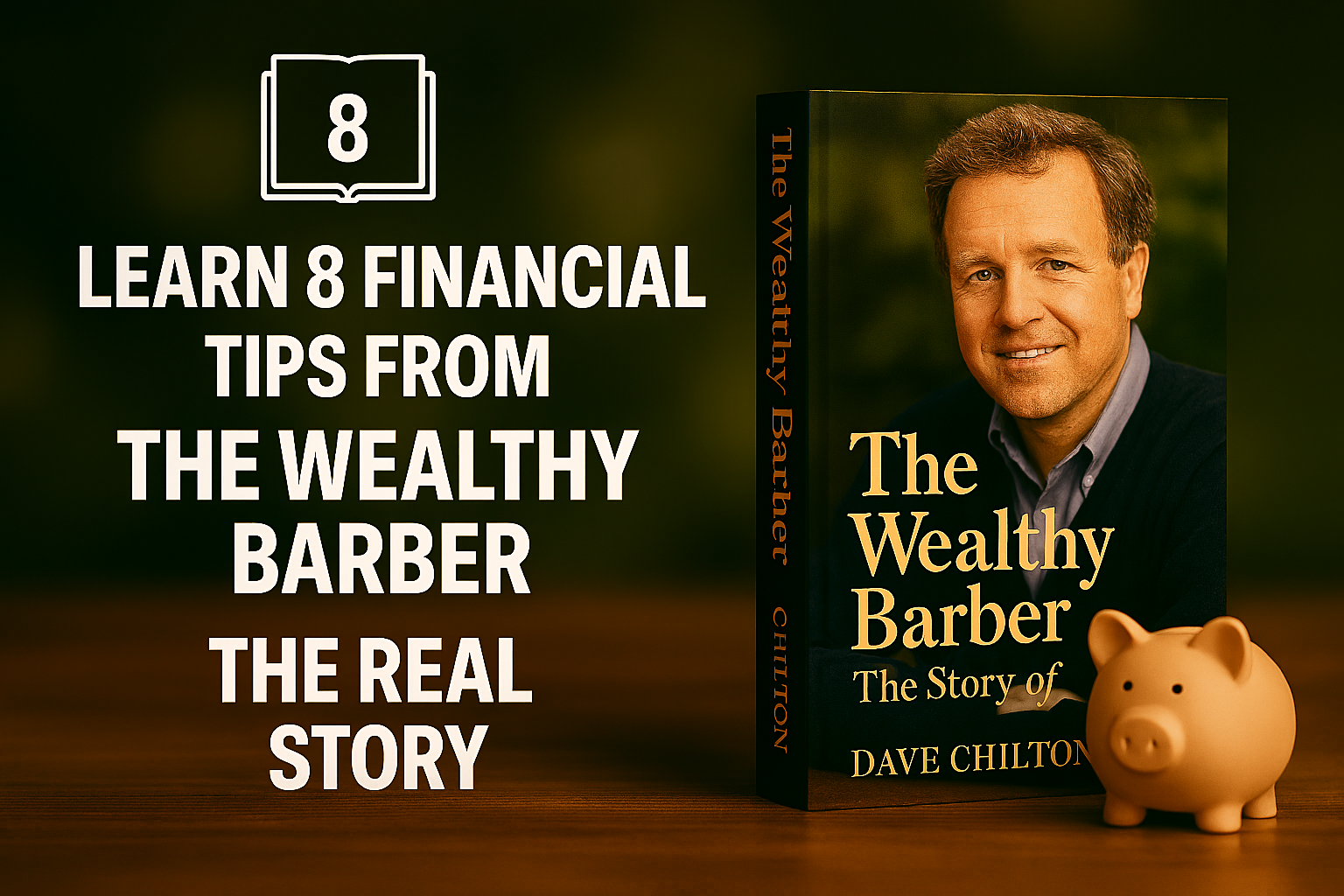
You've been using your card, paying for subscriptions you neglected, and ordering takeout because you're too exhausted to prepare meals, and all of a sudden, you're broke. Nearly 60% of people in the US have little or no savings and live paycheck to paycheck. The fact is, though, that not everyone wealthy or financially astute can manage their money. Like cooking or driving, it's a skill that everyone can master.
Money management isn't about spreadsheets with small type or deprivation. It involves taking charge of your future, making wise choices, and forming routines that support your objectives. Knowing how to properly handle your finances can be a game-changer, regardless of whether you're drowning in student loans or are just starting your first job. This blog serves as your step-by-step manual for beginning money management in a way that is liberating, novel, and, yes, even a bit enjoyable. Take a seat, get a cup of coffee, and let's turn money management into your next superpower.
Begin by keeping a month-long record of every dollar you spend. Use a basic notepad or programs like Mint or YNAB (You Need A Budget). Your spending patterns will be exposed, which may be enlightening. Many people think they only sometimes eat out, yet they end up spending more than $400 a month on fast food and coffee. It's awareness, not judgment. You can start making decisions instead of guesses once you see the truth.
After a month of keeping track of her spending, she discovered that she was paying $200 on food delivery and $150 on unused subscriptions per month. She began meal planning after cancelling the subscriptions. Outcome? Every month, she saved $300. Action Step: Make a basic Excel sheet or download a budgeting tool. For the next 30 days, keep a record of your spending. Just watch; don't make any changes just now.
Instead, make one that reflects your actual life. Budgets that are overly rigid or unrealistic frequently fail. A successful budget is about intention more than constraint. Giving every dollar a purpose, be it saving, enjoying life, or paying bills, is the aim. 50% to needs. Give it a personal touch. It's acceptable if Netflix and pizza on Friday night are among your "wants"—as long as they fall our 30%. Setting aside money for a gym membership is a wise decision if you enjoy working out.
An example from real life is Jake, a 25-year-old Atlanta teacher who once felt bad about spending money on hobbies. He set aside $150 per month for hiking trips and gear once he began utilising the 50/30/20 guideline to budget. He stayed to his budget and no longer felt bad because he had prepared for it.
Quick Tip: Record your real monthly income using the 50/30/20 structure. Remember to account for sporadic costs such as holidays, auto maintenance, and gifts.
Unpredictability is a part of life. Your vehicle breaks down. You lose your job. Bills for medical care are inevitable. These incidents could become financial catastrophes if there is no emergency fund. For this reason, every financial expert, including Suze Orman and Dave Ramsey, advises creating an emergency fund that can cover three to six months' worth of spending. Begin modestly. Even $500 can keep you out of debt in the event of an unforeseen circumstance. Create a different high-yield savings account and set up a tiny automatic withdrawal each payday, such as those offered by Capital One or Ally Bank.
Real-World Example: Maria, a Denver single mother, put aside $20 per week for an emergency fund. Her savings allowed her to pay with cash rather than a credit card.
Debt drags you down like quicksand, especially when interest keeps accruing. In the United States, the two most popular debt repayment strategies are the Debt Avalanche (paying the highest interest rate first) and the Debt Snowball (paying the smallest balance first). Choose the one that inspires you; both are effective. Decide on a plan and begin working on each one separately, paying as little as possible for the others.
Expert Viewpoint: Because early progress creates momentum, a Harvard Business Review study indicated that those who employed the snowball method were more likely to maintain their debt strategy.
Real-World Example: Josh, a Seattle barista who owes $18,000 on his credit card, decided to use the snowball method. In two months, he settled his smallest debt of $600. That victory encouraged him to keep going. After two years, he has no debt.
Quick Tip: Make a list of your debts right now. Select a technique.
Eliminating decision fatigue is one of the simplest strategies for efficient money management. Good intentions become action through automation. Automate your gifts, investments, savings, and invoices. This works because if money never reaches your checking account, you won't be as inclined to spend it. Example from Real Life: Leah, a thirty-two-year-old Austin software engineer, deposited $300 a month automatically into her Roth IRA. Compound interest allowed her automated investment to grow to $60,000 over ten years without her having to do anything. Suggestion for Visual
Example. A flowchart that demonstrates the process of automating income: paycheck → bills → savings → investments, → spending.
Step of Action: Configure all bills to be paid automatically. Transfers to investment and savings accounts should thereafter be automated.
Saying no to everything isn't the goal of money management; rather, it's about saying yes to the things that count. You deprive your future self when you spend carelessly. Understanding your beliefs and matching your finances with them is the foundation of conscious spending. In American culture, FOMO (Fear of Missing Out), peer pressure, and impulsive purchases are all real. You don't have to accept every night out or get a new iPhone every year. Take pride in your boundaries.
Real-World Example: Emily, a New York college student, began refusing to buy clothes on a monthly basis. Rather, she put money aside for a trip to Italy by herself. She was happier with that one choice than she would have been with ten new clothes.
Action Step: Consider whether a purchase will provide me with long-term benefits or merely a momentary rush before purchasing it.
However, your hidden weapon is knowledge. Read I Will Teach You to Be Rich or The Millionaire Next Door.
You can avoid scams and make better judgments if you understand investing, taxes, credit scores, and compound interest. To assist readers in determining their spending habits, provide a brief test called "What's Your Financial Personality?"
Step of Action: Commit to read one book this month about personal finance. Make notes. Put one thing into practice right away.
You are in charge of your financial future. Effective money management requires awareness, intentionality, and consistency rather than perfection. Although you don't have to be wealthy to begin, you must begin itobecome weto become every way. It's acceptable to make mistakes. You must continue. An incomplete plan to improve your financial situation has just been read to you. Thus, keep tabs on your spending, accumulate an emergency fund, automate your savings, settle your debt, and begin making investments for the future.
Recall that you are doing more than just handling finances. You are creating a life of autonomy, safety, and meaning. If this blog inspired you, click the notification bell and sign up for our newsletter. Together, let's develop. Last Interactive Checklist: Begin now.

Imagine this While enjoying coffee at a café, your twenty-five-year-old acquaintance remarks ...
 Tajib Ali
Tajib Ali
Your twenties are a time of freedom. You fantasize of creating the finest life possible after ...
 Tajib Ali
Tajib Ali
Imagine waking up in the morning, brewing a cup of coffee, checking your phone, and seeing that your...
 Tajib Ali
Tajib Ali.png)
We frequently hear financial advice and assume that saving money is merely a habit that takes time a...
 Tajib Ali
Tajib Ali.png)
Have you ever wondered how the most important financial choices are made in the world? Michael Lew...
 Tajib Ali
Tajib Ali.png)
One of those financial instruments that can simultaneously offer you freedom and risk is a credit ca...
 Tajib Ali
Tajib Ali.png)
However, the majority believe his tactics are exclusive to Wall Street gurus or billionaires. ...
 Tajib Ali
Tajib Ali.png)
Imagine, brothers and sisters, that you have earned a college degree and are free of student loan de...
 Tajib Ali
Tajib Ali
Ever wonder why some people, despite having ordinary salaries, manage to build long-term financial s...
 Tajib Ali
Tajib Ali
Comments (0)
Leave a Comment